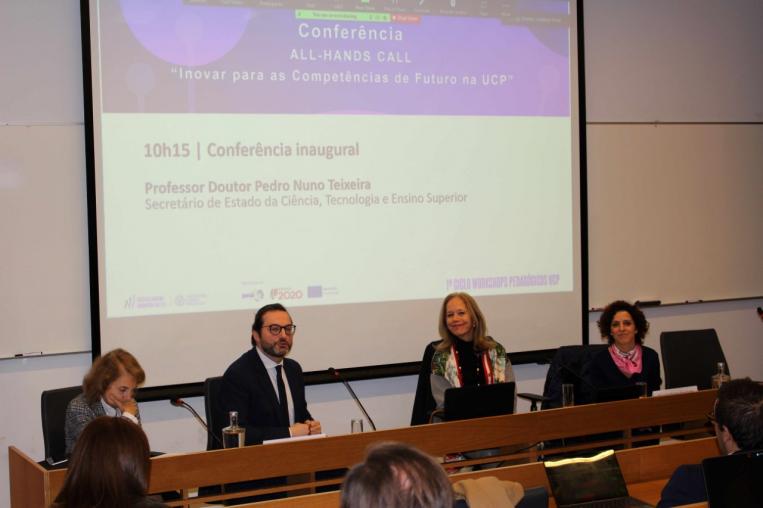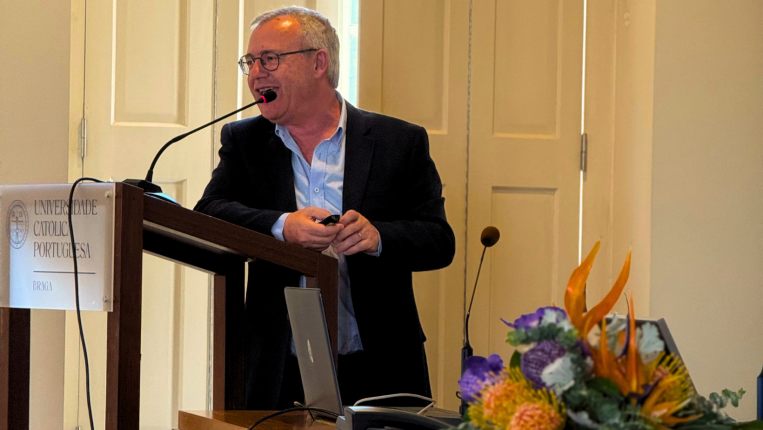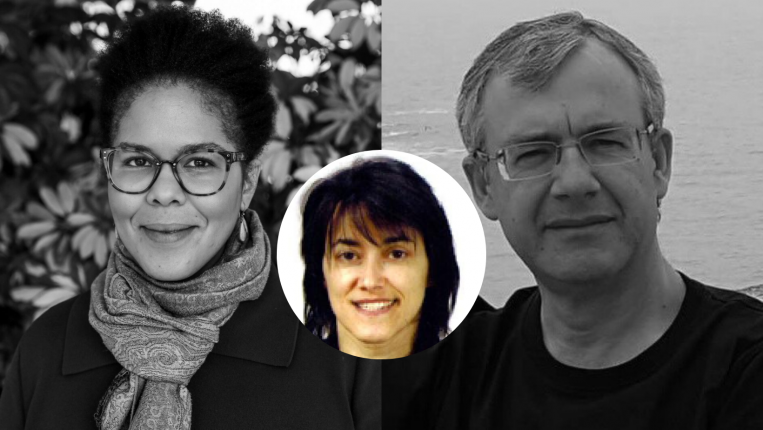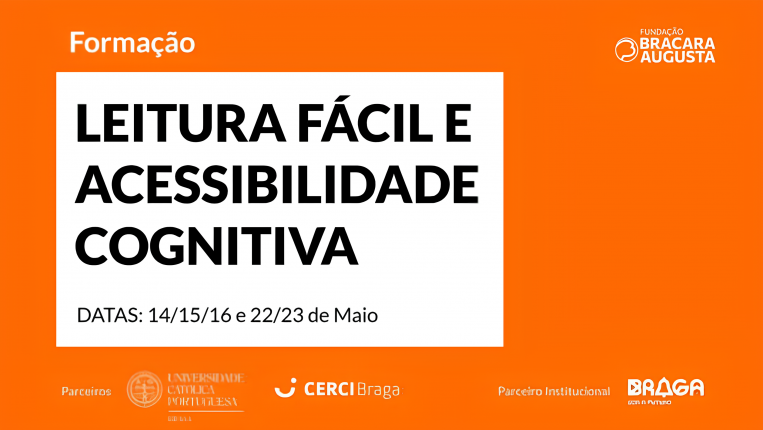
Professors and researchers from the four campuses of the Catholic University of Portugal – Porto, Lisbon, Braga and Viseu – participated in the Conference “All-Hands Call: Innovate for the Skills of the Future at UCP”, organized by CLIL | Católica Learning Innovation Lab, on the Porto Campus. An event that allowed reflection on the theme of pedagogical innovation within the University's academic community, and which was attended by Pedro Nuno Teixeira, Secretary of State for Science, Technology and Higher Education, by Isabel Capeloa Gil, Dean of the University Católica Portuguesa, and Diana Soares, coordinator of the Católica Learning Innovation Lab.
In his lecture, Pedro Nuno Teixeira, Secretary of State for Science, Technology and Higher Education, reflected on the main lines for the future of Higher Education in the development of fundamental skills such as integrated systemic thinking and critical and analytical thinking, cultural agility and applied and focused creativity. Likewise, he highlighted the importance of this type of initiative, as it provides the teaching community with moments of reflection on their pedagogical practices. Another aspect highlighted by Pedro Nuno Teixeira was the importance of integrating students throughout this process.
Isabel Capeloa Gil reiterated the importance of all the work being carried out by the community and by the Católica Learning Innovation Lab in the diagnosis, reflection and sharing of knowledge in the area of pedagogical innovation and that articulates with other strategic initiatives of the University, such as CATCH, led by vice-rector Isabel Vasconcelos, who was also present at the event.
Teachers, students and community partners in dialogue
Taking advantage of the motto left by the Secretary of State for Science, Technology and Higher Education on the fundamental skills that higher education students should develop, a round table was held, moderated by Sílvia Monteiro, from the University of Minho. In this space, Paulo Gaspar, from Deloitte, and Otília Castro, from the Municipal Directorate of Education of Porto City Council, participated as representatives of CLIL's strategic partners. From the UCP academic community, professor Marta Portocarrero and student Sofia Lopes were present.
Some of the issues addressed at the round table focused on the role of employers' organizations in training future professionals, the role of teachers in developing the skills of the future, and the challenges and difficulties currently facing higher education.
With the presentation entitled “Digitalization and Learning Innovation in Higher Education”, Palitha Edirisingha, from the University of Leicester, shared some possible approaches for introducing pedagogical innovation in higher education through digitization.
Following the conference, Paulo Dias, from the coordination team of the project “Skills 4 Post-COVID - Skills for the future in Higher Education”, and Amanda Franco, researcher at CLIL, contextualized the CLIL project and made official the launch of the 1st Cycle of UCP Pedagogical Workshops, also making known the next initiatives of the project, namely the learning and practice communities and the second phase of the inventory of pedagogical practices (IPP) to be applied to teachers of the second cycle of studies.
The closing of the Conference featured the final reflections of Isabel Braga Cruz, Pro-Rector of the Catholic University of Portugal, and José Lopes, Director of the Faculty of Philosophy and Social Sciences of the UCP.
About CLIL
CLIL was created with the aim of identifying, experimenting and testing innovative pedagogical approaches, with the collaboration of UCP teachers, researchers and students, as well as the support of a council of strategic partners from the business fabric and civil society.
The laboratory is part of the project “Skills 4 Post-COVID - Skills for the future in Higher Education”, funded by Portugal 2020, under the PO CH – Human Capital Operational Program, through the ESF – European Social Fund.



